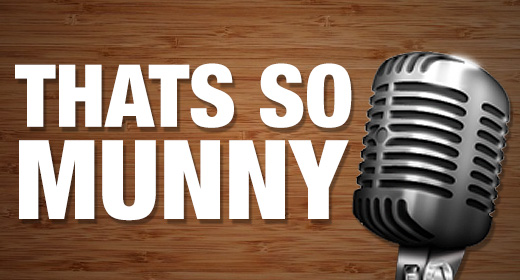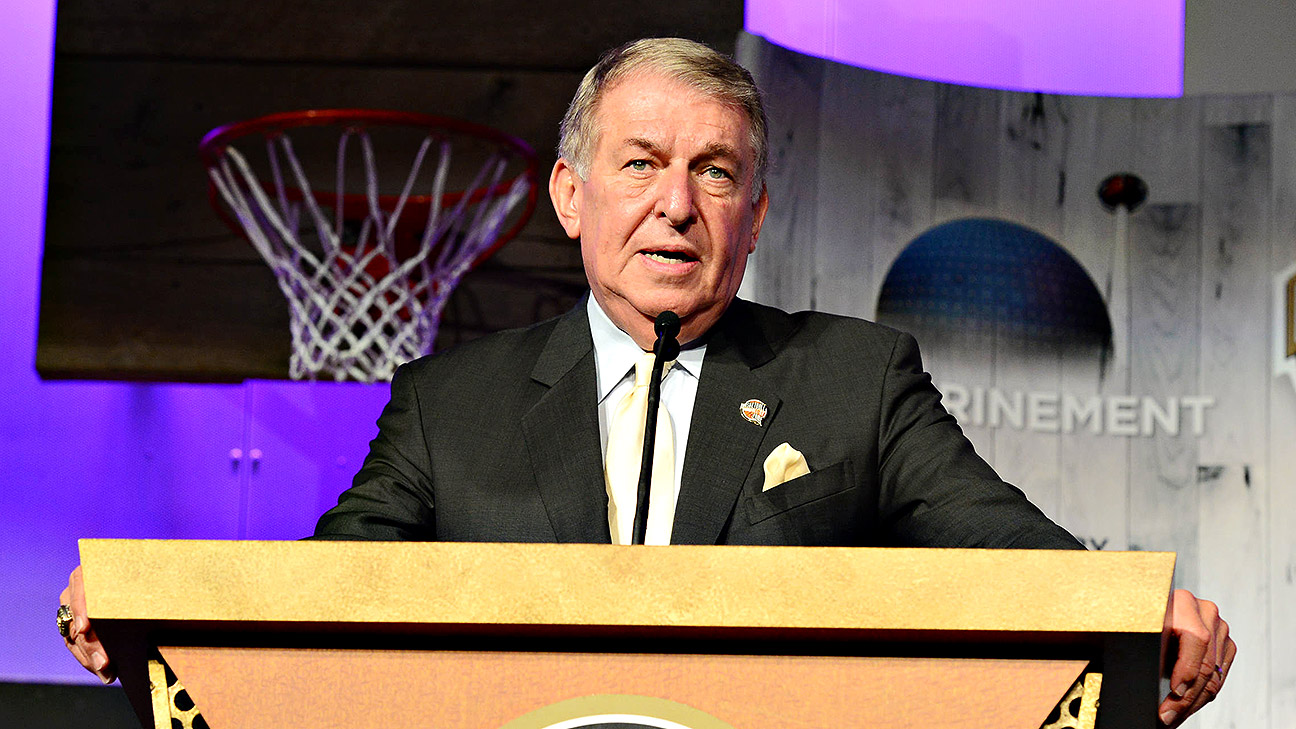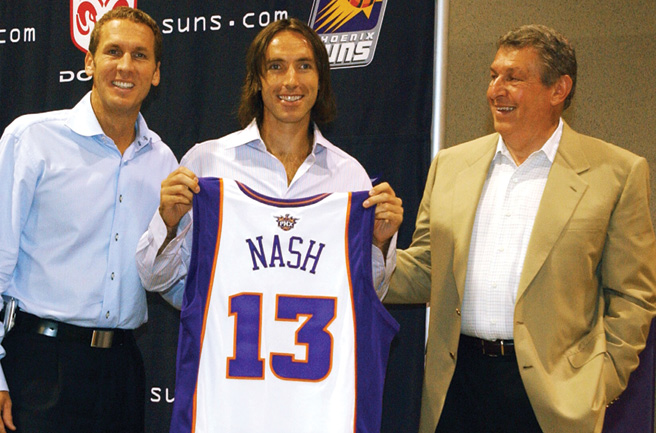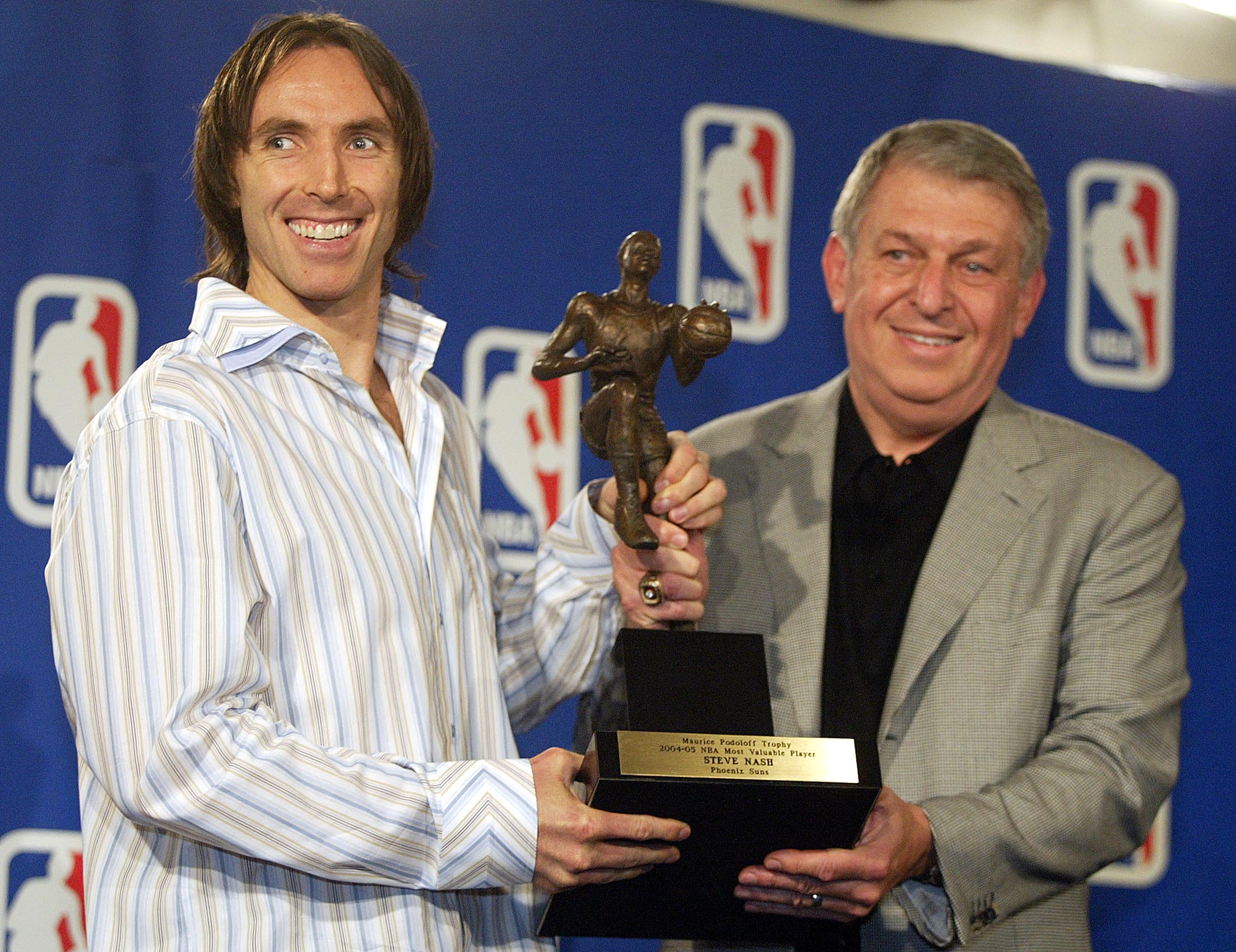By Jeff Munn
In the early 1980’s, a Phoenix TV station did a feature on Suns Head Coach John MacLeod and his young son Matthew. The last pictures had MacLeod walking off the court at Veterans Memorial Coliseum with Matthew running alongside.
I’ve thought about Matthew on occasion the past few years. First when I saw him appear on his father’s behalf when his Dad was inducted into the Arizona Sports Hall of Fame, and again this week, in the days following his Dad’s passing at age 81.
I wonder if Matthew knows how powerful an impact his Dad had….on basketball…on the Suns, and on people who admired his dedication to his philosophies, his love of the game, and his regard for his fellow-man.
In March of 1973, all this could not have been imagined when then-General Manager and Interim Head Coach Jerry Colangelo invited MacLeod, then the Head Coach at Oklahoma University, to come to Phoenix for an interview, and later, a visit to the Suns locker room. The Suns were finishing a disappointing 38-44 season, with Colangelo having dismissed Head Coach Butch Van Breda Kolff seven games into his Suns tenure.
Prior the club’s last home game, MacLeod visited with the Suns pregame and drew up a few plays on the chalkboard. Players were so impressed with MacLeod’s acumen that, even after he turned down the job the first time, players were still asking Colangelo if there was any chance MacLeod would change his mind.
He did several days later.
Knowing a rebuild of the Suns was needed, Colangelo stuck by MacLeod during a 30-win season his first year and 32 wins the second. It was after that second year that all of Phoenix started to learn the real story of John MacLeod.
Picking fifth in the first round of the 1975 NBA Draft, MacLeod staked his reputation, not to mention his career, on an undersized center he had coached in college. Alvan Adams threw the low-post dominated NBA a curve, operating at a high post, shooting from mid range and adding a top-level passing touch. With other additions both before and during the 1975-76 season, the Suns memorized a city and a nation with one of the most improbable runs to the NBA Finals before losing in six games to the Boston Celtics.
As far as basketball goes, the record is easy to see. Eight consecutive playoff appearances from 1978-85. After Phoenix, he took the Dallas Mavericks to within one win of the NBA Finals in 1988. Then in New York, he guided the Knicks to a playoff appearance after taking over 15 games into the 1990-91 season. He also coached at Notre Dame for eight seasons (1991-99), earning Big East Coach of the Year honors in 1997.
But I wonder if Matthew knows how his Dad impacted people away from basketball.
John MacLeod never answered a reporter’s question without starting with the reporters first name. A radio reporter who covered Suns home games had missed time in the middle of the 1982-83 season to work on getting his blood pressure under control. On the reporter’s first game back, MacLeod delayed the usual questions about the game until he welcomed the reporter back and asked detailed questions about how his health was.
I wonder if Matthew’s Dad ever told him about Game Five of the 1984 Western Conference Finals. Having gone 41-41 through an injury marred season, the Suns charged their way into a best-of-seven with the hated Los Angeles Lakers. Up three games to one and playing at home, the Lakers were poised to give the NBA their long-awaited dream of a Lakers (Magic Johnson) vs. Celtics (Larry Bird) showdown.
The Suns not only spoiled the party, they nearly ruined the dream. A 126-121 win might have been John MacLeod’s proudest moment as a coach. So proud, he made a surprise appearance on Al McCoy’s radio post game show “high above the Western sideline” at the Fabulous Forum. MacLeod wanted to tell people who faced difficult circumstances that he hoped they would be inspired by his team’s performance, and like the Suns, never give up.
That’s your Dad, Matthew. There have been more successful coaches in the history of basketball, but there’s never been a better man.
In the midst of the pain your family is feeling, a few of us just want to say thanks. Thanks for sharing your Dad with us. He’ll be remembered. For all the right reasons.




